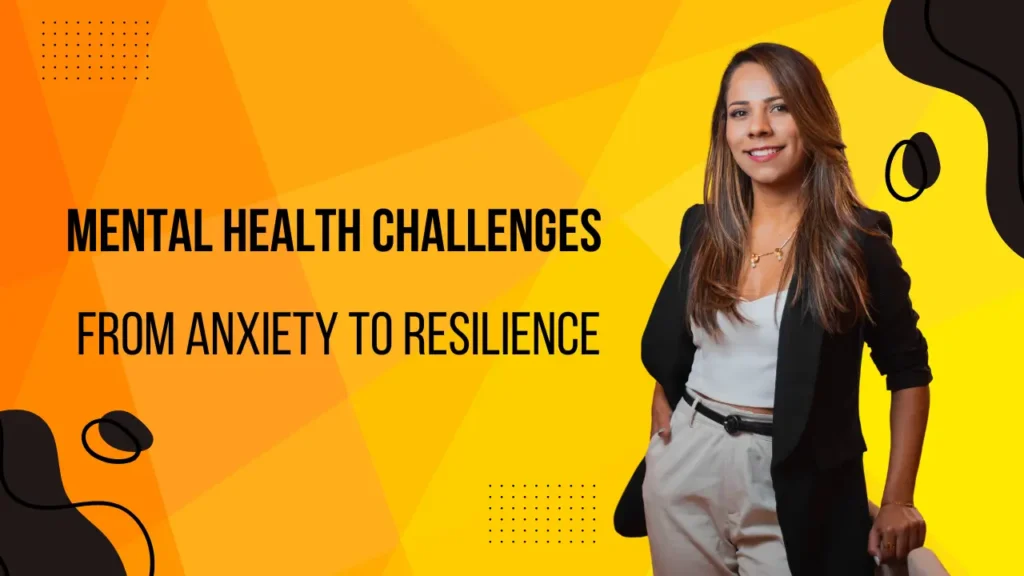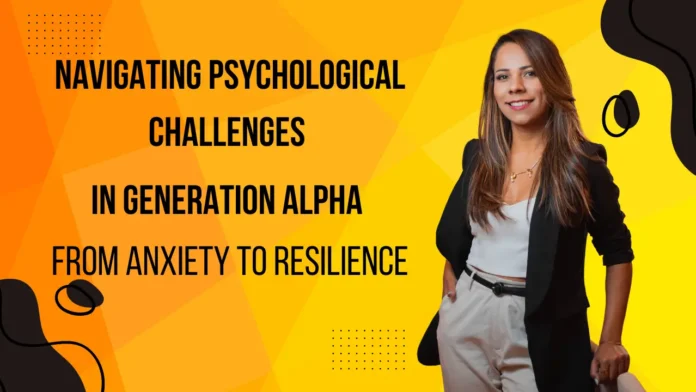Navigating Psychological Challenges in Generation Alpha: In the rapidly changing world of today, Generation Alpha, born between 2010 and 2025, faces unique psychological challenges. They are growing up in an era dominated by technology, globalization, and uncertainty. As a result, their mental health experiences differ significantly from previous generations. Anxiety, depression, and mental resilience have become crucial topics that need addressing in a world where digital interactions are becoming the norm.
This article explores the psychological challenges Generation Alpha faces, the factors contributing to these issues, and how parents, educators, and society can help them build resilience in the face of adversity.
The Rise of Anxiety in Generation Alpha
1. The Role of Technology
Generation Alpha is the first generation to grow up entirely in a world where technology is integrated into every aspect of life. From an early age, they are exposed to smartphones, tablets, and social media platforms. While these tools have revolutionized communication and learning, they also come with a set of psychological risks.
Social media, in particular, can trigger feelings of anxiety and self-comparison. Platforms like Instagram and TikTok encourage children to compare their lives to highly curated images of others, leading to feelings of inadequacy and low self-esteem. Constant digital connectivity also fosters a fear of missing out (FOMO), which exacerbates anxiety levels.
Additionally, the constant exposure to news cycles that highlight global crises, such as climate change, pandemics, and political instability, can create a sense of impending doom. Generation Alpha’s exposure to these events at a young age can lead to feelings of helplessness and existential anxiety.
2. Educational Pressures and Expectations
The education system has evolved significantly over the last decade, with an increased emphasis on academic performance, standardized testing, and early career planning. These pressures can take a toll on a child’s mental health. For Generation Alpha, the competition begins earlier than ever, with students feeling the pressure to excel academically and participate in extracurricular activities to secure their future.
Parental expectations, coupled with societal norms, can push children into a state of constant stress, where they feel they are never good enough. Performance anxiety and fear of failure are becoming more prevalent, leading to burnout at a young age.
Mental Health Challenges: From Anxiety to Depression

1. Rising Rates of Depression in Youth
Anxiety is not the only mental health concern plaguing Generation Alpha. Depression is on the rise among younger demographics, and the reasons are multifaceted. In addition to the pressures of modern education and social media, the lack of in-person social interactions due to the rise of online communication platforms has created a sense of isolation for many children.
The COVID-19 pandemic has only exacerbated this issue. With schools closing and activities moving online, many children have missed out on important developmental milestones, resulting in heightened levels of loneliness and disconnection. The pandemic has also left many families struggling with economic insecurity, which can trickle down to children and manifest as emotional distress.
2. Lack of Coping Mechanisms
Another major challenge for Generation Alpha is the lack of effective coping mechanisms. While previous generations learned to navigate stress through direct social interactions, many children today are turning to screens as a distraction, which may not address the root of their anxiety or sadness. Instead of learning healthy ways to manage their emotions, they often suppress them, leading to more severe mental health issues later in life.
Building Resilience: Fostering Emotional Strength in Generation Alpha
1. Encouraging Open Conversations About Mental Health
To combat the rise of anxiety and depression in Generation Alpha, it is crucial to foster open communication about mental health. Schools and parents must create environments where children feel safe to discuss their feelings without fear of judgment. Teaching children about the importance of mental health and providing them with the vocabulary to express their emotions can empower them to seek help when needed.
Regular conversations about stress, anxiety, and emotional health can normalize these topics and remove the stigma that often surrounds mental health issues. When children feel heard and understood, they are more likely to develop emotional resilience.
2. Digital Literacy and Healthy Technology Use
While technology has its benefits, it is essential to teach children how to use it responsibly. Parents and educators should encourage digital literacy by helping children understand the impact of social media on their mental health. Limiting screen time, fostering face-to-face interactions, and promoting hobbies that don’t involve technology can provide children with the balance they need in a hyper-connected world.
Teaching children to critically assess what they see online, avoid negative self-comparison, and engage in positive online communities can go a long way in reducing the anxiety they experience from social media.
3. Mindfulness and Stress-Reduction Techniques
To build resilience, Generation Alpha must be equipped with tools to manage stress and anxiety. Mindfulness techniques, such as deep breathing, meditation, and grounding exercises, can help children become more aware of their emotions and develop a sense of control over their reactions.
Incorporating physical activities, such as yoga, sports, or even nature walks, can provide children with an outlet for stress while promoting physical health. Regular exercise is known to improve mood and reduce symptoms of anxiety and depression.
4. Cultivating a Growth Mindset
A key component of building resilience is teaching children to adopt a growth mindset. Instead of fearing failure, they should be encouraged to see challenges as opportunities for growth. When children understand that mistakes are part of the learning process, they are less likely to experience debilitating performance anxiety.
Parents and teachers should praise effort over achievement, emphasizing the value of persistence and resilience. By focusing on progress rather than perfection, Generation Alpha can learn to approach obstacles with confidence and optimism.
The Role of Parents and Educators in Shaping Resilience

1. Parental Involvement
Parents play a critical role in shaping their children’s mental resilience. By maintaining open lines of communication, modeling healthy coping strategies, and providing unconditional support, parents can help their children navigate the complex emotional landscape of today’s world.
Parents should also be mindful of the pressure they place on their children, offering encouragement and validation instead of criticism. Creating a home environment that prioritizes mental well-being over external success can help children feel secure and develop self-confidence.
2. The Educational System’s Role
Educators have a unique opportunity to shape the emotional resilience of Generation Alpha. By implementing social-emotional learning (SEL) programs in schools, teachers can provide students with the tools they need to understand and regulate their emotions.
Additionally, schools should focus on reducing academic pressure and fostering a more inclusive and supportive environment. Offering mental health resources, such as counselors and support groups, can help students address issues before they escalate.
Read More: How Generation Alpha Psychology is Shaping the Future of Education
Conclusion: Shaping a Resilient Generation
Generation Alpha faces a world full of both challenges and opportunities. By addressing the psychological challenges they encounter—such as anxiety and depression—and equipping them with the tools to build emotional resilience, we can help them thrive. With the right support from parents, educators, and society as a whole, Generation Alpha can grow into a generation that is not only resilient but also mentally strong and adaptable.




